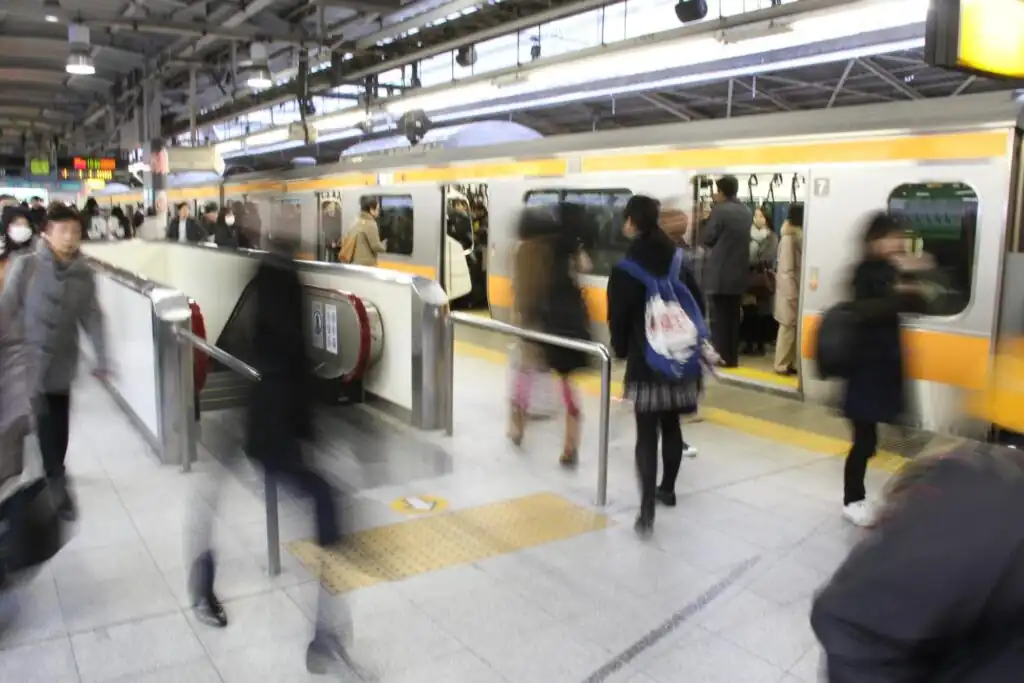Many Japanese firms, businesses, and organizations have a long-standing tradition of relocating employees to different departments within the company or to affiliated firms. It’s seen as part-and-parcel of climbing the corporate ladder.
Many of these relocations occur before the start of Japan’s fiscal year, which is from April 1st to March 31st. Employees who actively seek employment with a different firm, business, or organization also usually embark on their moving journey anywhere between February to April, making this period quite costly for individuals who have to relocate for work.
Moving costs: All expenses you need to be prepared for

One of the biggest expenses that come from moving is money. Therefore, individuals who are considering a job change need to factor in the possibility that they may have to relocate for their new job.
Moving to Japan is not only time-consuming but potentially expensive, especially when it comes to the initial move-in costs when you sign a lease for an apartment. The initial costs of renting in Japan can add up to 4 to 6 months’ rent because of the following fees that new tenants may need to pay upfront:
- Security deposit – 1~3 months’ rent
- Key money (reikin) – 1~2 months’ rent
- First month’s rent
- Real estate agency’s commission – 0.5 ~ 2 months’ rent
- Guarantor fee – 1~3 months’ rent
- Fire insurance – ¥10,000 ~ ¥30,000
- Key replacement fee – ¥7,000 ~ ¥20,000
Depending on the real estate agency you go with, your initial costs may be lower if the agent can negotiate on your behalf to exclude you from having to pay some of the above. Other agencies, such as Village House promise low upfront costs with no deposit, no key money, no handling fees, and no renewal fees.
Aside from this, there is the expense of hiring a professional moving company to help you relocate. According to one Japanese moving service comparison site, the average cost for a single person with minimal belongings to move is between ¥25,486 to ¥40,000. For obvious reasons, this price range increases if you’re moving as a couple or a family.
When you move is also a huge factor. If you decide to move during peak moving season (February to April), the average moving cost for a single individual can be between ¥60,000 to ¥70,000. How far you need to move will also be another factor to add in – it can cost around ¥40,000 to move locally but up to ¥80,000 ~ ¥110,000 for a long-distance move.
Apartment search: Start after your final interview

Peak hiring season in Japan typically stretches from November to February. Due to this, most people are moving during February and March. If possible, it is recommended to avoid moving during this time. More options will be available to you if you start your apartment hunt outside of the peak moving season and there is a higher possibility of negotiating for lower rent.
It’s best to attempt to finalize the interview process by December. When you’re sure you’ve landed a job and signed the contract, you can start looking for apartments.
Save money: Aim for a hire date outside of the peak season
As previously mentioned, the traditional hiring season in Japan falls between November and February but there are job openings available all year round depending on what you’re looking for. If the job you sign up for doesn’t provide financial help when it comes to relocating, then it’s best to try to move outside of the peak moving season so that you can stay within your budget. According to a Japanese moving service comparison site, the cheapest month to move is October, so this is a good window to aim for if you’re strapped for cash or just want to save up as much as possible during your relocating process.
Location: Consider your commuting time

You may be lucky that the new job you’ve applied for is in the city you’re currently living in and therefore, what you need to consider is if you need to move because the commute from your current residence is longer than you’re comfortable with.
Commuting is almost synonymous with work and everyday life in Japan and nationally, the average person commutes a total of 1 hour and 19 minutes to and from work every day. This means that a single trip averages out to about 40 minutes. However, in busy cities such as Tokyo, the average commute time is almost 2 hours because living in the city center is exorbitantly pricy and many employees choose to live on the fringes of Tokyo city and commute to work to save on rent.
Although many companies will pay for your transport pass, a long commute is not only exhausting but will cut into your downtime; so consider carefully whether moving closer to work is, in the long term, more beneficial for you.
Plan in enough time after the contract signing

Moving is stressful and time-consuming. There’s no way around it. However, you can minimize the impact it’ll have on you and whoever else is moving with you by staying on top of things. One way to do this is to immediately begin house hunting and preparations for moving once you’ve finalized and signed your new job contract.
Many studies suggest giving yourself at least 8 weeks (2 months) before your official moving date to organize your belongings, calculate your budget, find a suitable apartment, give your current landlord notice, and if need be, search for schools, nurseries or daycare if you have children.
Taking the above information into account, when discussing and negotiating the terms and conditions of your job contract, try to negotiate for the starting date to be 2 months from when you first sign the contract to give yourself ample time to get things in order if you need to relocate. If the new firm or organization offers relocation assistance be sure to take advantage of it.
Related articles:
- What Time of the Year is Best for Moving? Everything You Need to Know About the Difference Between the Slow and Busy Season!
- Shinseikatsu: 5 Common Worries People Have When Starting Their New Life and How to Deal with Them
- Short-Term Rentals in Japan: All About Monthly Mansions
- Things That Anyone Apartment Hunting Needs to Know
- Suitable Apartment Layouts for a Family of Three – Find Out Which Is Best for You!

Freelance writer with over 2 years of experience writing for the Village House Blog, ESL teacher, and digital nomad who has lived in countries including The Czech Republic, The UK, The U.A.E., Japan, and most recently, Georgia. Is constantly on the hunt for the best, most optimal apartment for remote work when not enjoying going to film festivals, concerts, and the theater.



